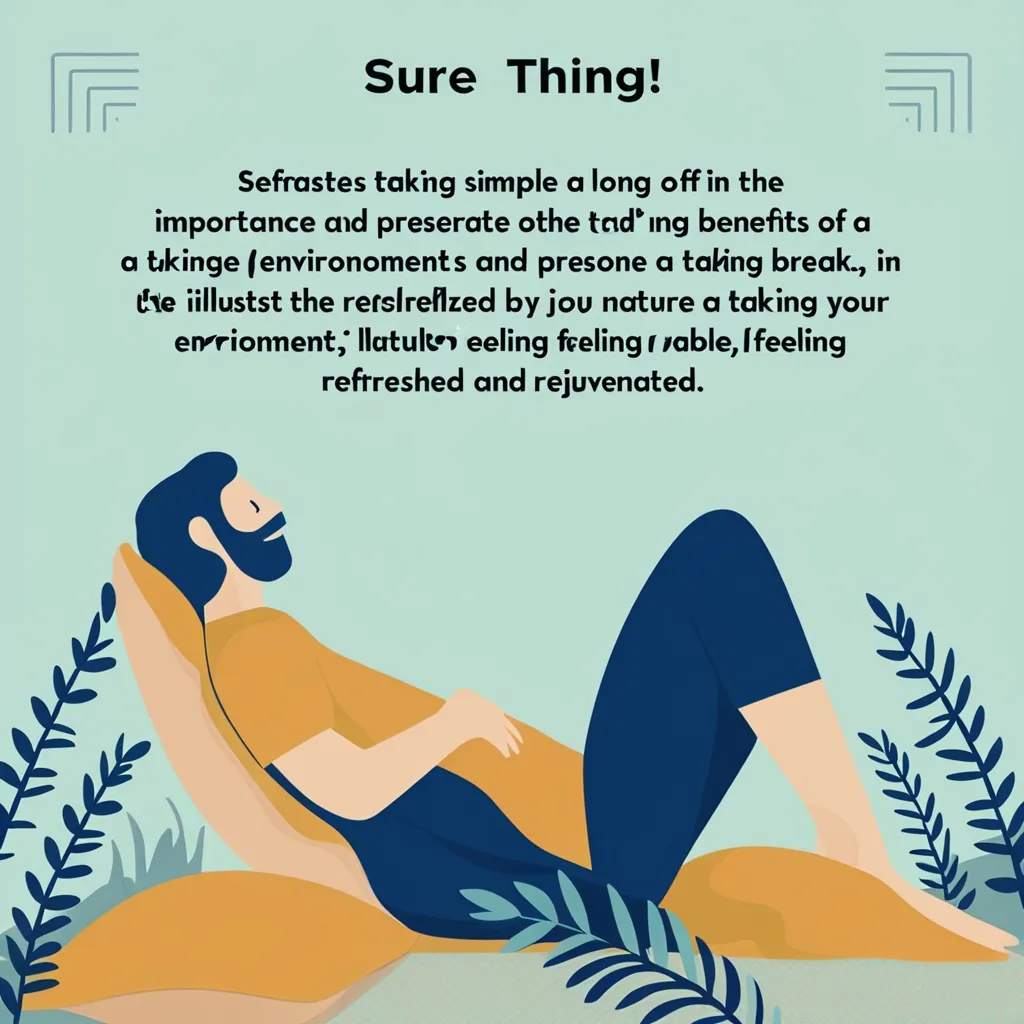In the lightning-speed world we live in, juggling work and personal life has never been trickier. Tech has us tethered to our jobs 24/7, which makes drawing a line between work and home life a serious challenge. Yet, setting sharp boundaries is essential for keeping stress levels down, ramping up productivity, and boosting our well-being.
Draw the Line
The first move in separating work from play is figuring out what your boundaries look like. This means nailing down your non-negotiables—like work hours, your availability, and personal commitments. Think about the things that make you feel good, be it hitting the gym, hanging out with family, or diving into your hobbies. These should top your priority list. Make sure your coworkers, bosses, and clients know about these boundaries and understand why they matter. Setting limits isn’t being selfish; it’s an investment in your own well-being and efficiency.
Create a Work-Free Zone
Having a designated space for work can do wonders for your balance. If you can, carve out a specific area in your home just for work. This physical barrier helps your mind distinguish between “work mode” and “chill mode.” You’ll find it easier to mentally shift gears. Make sure your workspace is comfy, tidy, and free of distractions. And a big one—keep work stuff out of your personal spaces like bedrooms and living rooms to resist the temptation to work past your hours.
Stick to Set Hours
In today’s digital age, where we are always connected, setting clear work hours is a must. Decide when your workday starts and ends—then stick to it. Let your colleagues and clients know these hours so they don’t expect you to be available round the clock. Avoid working or even checking emails outside these set hours. This not only protects your downtime but also keeps burnout at bay.
Be Smart with Your Time
Good time management is crucial for a healthy work-life balance. Prioritize your tasks based on how important and urgent they are. Make sure you carve out enough time for work duties and personal activities alike. Procrastination can bite you in the backside, so break tasks into smaller chunks and set realistic deadlines. This way, you stay focused at work and can truly enjoy your personal time.
Control Your Tech
Tech can be a double-edged sword. It’s great for staying connected but can blur the lines between work and personal life. Set specific times to check work emails or take calls, and avoid doing so during your personal time. Use auto-responders to manage availability. Turn off notifications after work or on weekends. Trust me, your sanity will thank you.
Speak Up
Communication is key. Let everyone—family, friends, coworkers—know about your schedule. Share your daily routines, important meetings, lunchtime, and end-of-workday times on a shared calendar. This way, people understand when not to disturb you, reducing unnecessary interruptions during your personal time.
Don’t Forget Breaks and Self-Care
Regular breaks are critical for keeping your energy up and avoiding burnout. Use your lunch break to step away and do something that relaxes you. Make quality time with loved ones a priority and don’t skimp on self-care, whether that’s exercise, reading, or any other hobby. Taking care of yourself isn’t a luxury; it’s essential.
Learn to Say No
Being a people-pleaser can lead to taking on too much, which is a fast track to burnout. Learning to say “no” can be incredibly freeing. When you decline, do it quickly and courteously. Thank whoever asked, then be honest about your commitments. Suggest alternatives without overloading yourself, and always keep your response respectful.
Revisit and Revamp Your Boundaries
Boundaries aren’t set in stone; they need to change as you grow. Make it a habit to review your boundaries regularly, say every six months or so. Life circumstances change, your career evolves, and what worked before might not work now. Feedback from trusted colleagues or managers can be helpful in fine-tuning these limits.
Handle Work Stress
Workplace stress can creep up and mess with your mental health. Watch out for signs like constant headaches, trouble sleeping, or trouble concentrating. These can be signs that your boundaries are being crossed. Team up with your employer to develop strategies that promote well-being and prevent burnout. Regular check-ins can provide a way for employees to voice concerns and get support.
Cultivate Balance at Work
Creating a work environment that values balance is paramount. Open up the conversation about personal needs and negotiate fair boundaries. Managers should set the tone by respecting these limits and even taking mental health days themselves. These initiatives promote a healthier, more balanced workplace for everyone.
Treasure Personal Time
Your calendar shouldn’t just be about work; personal time is equally important. Schedule regular social activities, exercise sessions, date nights, or family outings. Also, make time for yourself to just relax. This gives you something to look forward to and helps you manage your time better.
Tips for Remote Workers
Remote work adds its own set of challenges. Designate a specific workspace, even if it’s just a quiet corner. Let your family and coworkers know your work hours. Noise-canceling headphones can signal you’re in work mode. Regular breaks are essential, and make sure to indulge in activities you enjoy in your downtime.
Wrap-Up
Achieving that sweet spot of work-life balance takes effort and intention. By defining your boundaries, creating physical work-free zones, sticking to work hours, managing your time smartly, controlling tech use, saying no to extra commitments, prioritizing self-care, and revisiting your limits regularly, you’re carving out a path to a happier, healthier you. Remember, setting boundaries isn’t a sign of weakness; it’s a sign of self-respect and commitment to living a full, balanced life. Prioritize your personal time and keep work and home life distinct. Your mental health, productivity, and overall quality of life will thank you.






